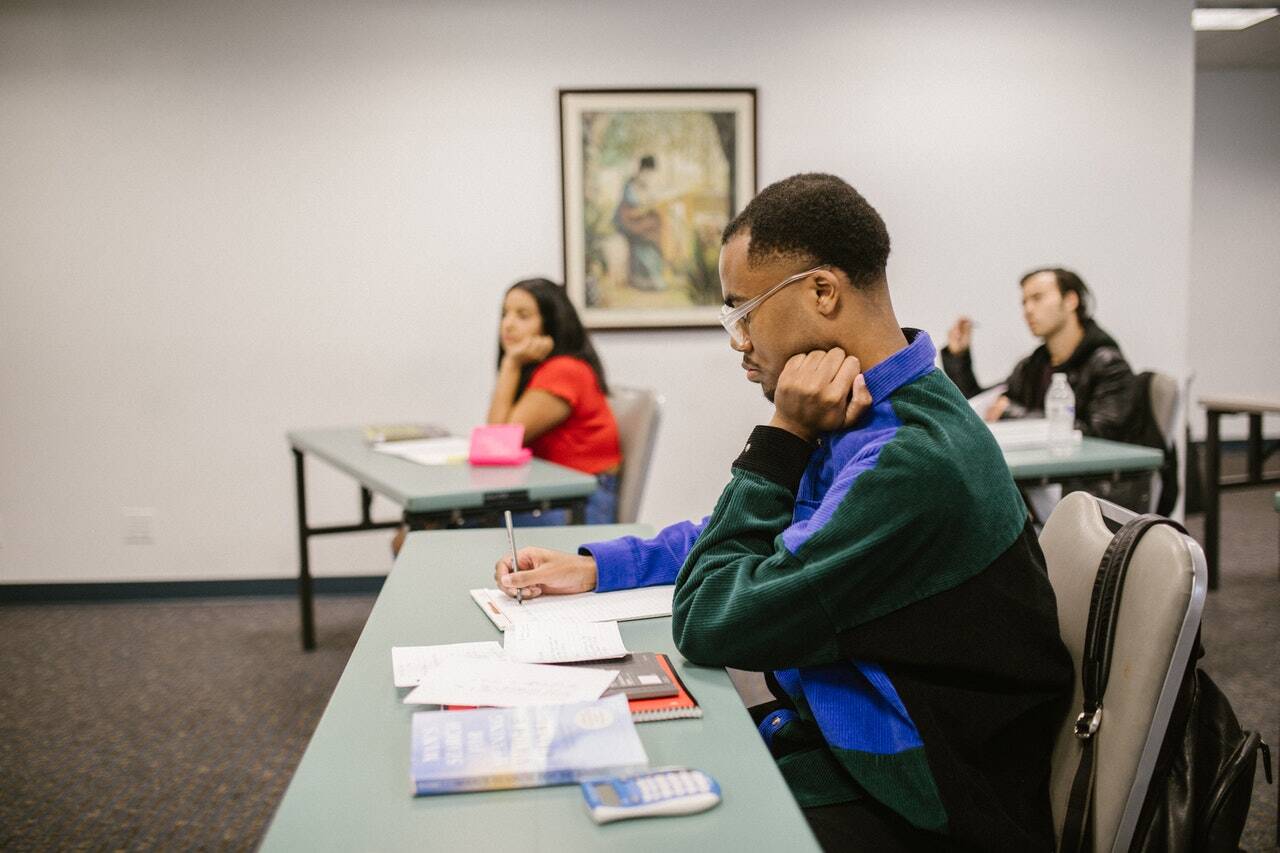Students are definitely some of the most stressed-out people out there, and they’re not to blame. With the numerous academic obligations and the unknown future lying ahead of them, they can’t help but feel the pressure.
This pressure is then translated into lower physical and emotional health. Fortunately, there are ways to keep stress at bay, and we are going to show you how.
What Are the Signs of a Stressed Student?
Many students experiencing stress show different signs; however, there is a list of signs that are pretty common among this community. They seem to not be able to concentrate and get work done, consequently delaying their work on their projects as well as deteriorating in quality. Stress can even make the students miss their classes, not wanting to be part of the uni activities.
There is also a list of physical and behavioral signs that stressed students display. Most students experience changes in appetite. Those who feel stressed for a short amount of time might feel like not eating anything. On the opposite, long-term stress might increase their appetite as the stress releases the hormone cortisol, which impacts appetite increase.
Stress can also impact the quantity, and the quality of sleep one gets per night. This pressure students feel might be the factor that causes nightmares and insomnia.
Here’s a list of other symptoms that students might feel when they’re stressed:
- Crying over nothing
- Negative thoughts
- Digestive problems
- Impatience
- Irritability
- Self-isolation
Stress Management Tips for College Students
When someone is feeling stressed, their mind is in an overwhelming state that makes it almost impossible for them to find solutions that could get them out of that feeling.
Unplug
It has never been this hard for people to just have a break from the digital world. There is always something happening around us, new trends appearing on social media, and many ways you could busy yourself with. While one can’t separate themselves altogether from the things surrounding them, one can certainly minimize their effect to some extent. When it comes to social media, one can limit their time they spend on the phone by keeping track of their activity. Once you reduce your screen time, you can spend that time doing activities that you haven’t done in a while instead of something that involves anything digital.
Watch an episode or two

Sometimes, all a person needs is to forget about everything that is happening around them. And what better way to do so than to binge-watch a TV show or have a movie marathon. The genre of what you choose to watch isn’t as relevant as the fact that you’ll be entertained, and forget what is bothering you. Some choose to watch TV reruns of their favorite shows because they are familiar with them and know what to expect, whereas others might choose to watch something entirely new. The most important thing is that at the end of that marathon, you’ll be emerging out of your cocoon, all relaxed, energized, and ready to take on the day.
Create space & a schedule
Given that studying is what stresses students out, this is an issue that you ought to find a solution for. When it comes to effective studying, one has to create a space where quietness dominates, and one can concentrate. Seeing how stress can lead to students losing their focus, this space is a necessity. You can create that space by setting up a desk and a chair and moving everything you need to study there. That space should be a place away from the noise your roommates or your family usually create. Or you can always frequent libraries or coffee shops.
Now that you got your own study space, the next step is to create a schedule. It’s not healthy for someone to do something for hours on end because you can get easily burnt out. That’s why a schedule can come in handy in this situation. Through the schedule, you allocate time for both studying and having fun. Also, once you start following the schedule you created, you will be on time with your reading plans as well as projects, meaning that you won’t have a reason to overstress.
Walk when you can
Physical activity is known to have benefits that aren’t limited to physical wellness only. It also greatly affects our mental health. Walking allows you to move away from the triggers of your stress, to think, and breathe easily. According to a study done on the subject, short walks of 10 minutes can improve your humor.
Try yoga

What’s the opposite of stress? It’s relaxation for sure. What activity better will promote relaxation other than yoga itself. Yoga can be practiced alone, or you can join yoga classes that many college gyms offer. Rest assured that it won’t mess with your schedule as you can do it whenever you want, be it in the morning or right before bed.
Eat good
This goes without saying—a person needs to feed their body with healthy food for it to function properly. However, students, especially those who are constantly on the move, find it difficult to make sure that they’re eating right. With no parents around to ensure they’re taking their daily vitamins and minerals through food, one is never sure what they’re eating. Seeing how fast food is sometimes a more affordable food option, students can’t be blamed that they choose it instead of cooking themselves, as they’re trying to save up.
✅ Request information on BAU's programs TODAY!
Get enough sleep
We mentioned how lack of sleep is a side effect of students’ stress during their academic studies. Busy schedules and late-night anxiety might be the reasons why many people can’t seem to fall asleep. For a healthy body and a healthy mind, one has to make sure they get approximately eight hours of sleep per day. That’s why you should go to bed at a reasonable hour, depending on when you’re expected to wake up.
Talk to your family
Being away from home can be difficult for many students. But being far away physically doesn’t mean you can’t stay connected to them virtually. A quick video call with your parents or even your siblings can go a long way for you and your mental health.
Connect with your college friends
The people who can really understand what you’re going through are the people you go to college with. So, it is best to stay connected with your college friends. Not only can you count on each other to talk about the stress you’ve been feeling lately, but you can also help get each other out of that situation.
College offers many extracurricular activities for those that want to challenge themselves and have fun at the same time. You can join different clubs depending on your interests, or you can connect to students that you see around campus. While it could be hard for you to put yourself out there, it will be worth it as you can create friendships that will last a lifetime, and you’ll have a shoulder to cry on when the difficult exam days come on the horizon.
Go shopping
Retail therapy is one of the methods many people use to relieve the stress they feel. You must have found yourself in this situation at least once in your life when you buy stuff that you don’t need but that you believe we’ll make you feel good about yourself. While this can at times turns into compulsive buying, it doesn’t have to be like that. You can always treat yourself to something good without letting it get out of hand.
Try journaling
Journaling is widely known and suggested to people that need to process their stress and life issues. By writing daily in your journal, you learn more about yourself, your emotions, concerns, and fears and learn to control them. So, when you feel stress crawling through your body, you’ll know how to handle it.
All in all, nowadays stress is an inevitable part of our lives—we can hardly escape it. Thanks to tips like these we mentioned above, we can learn to control it and not let it affect us in any aspect.











